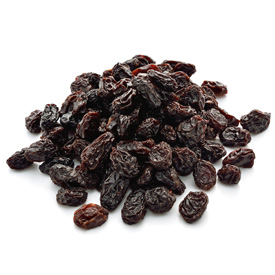Does takings clause apply to personal property? SCOTUS to consider the issue in raisin case

Image from Shutterstock.
Raisin growers who are contesting a federal set-aside requirement will be back before the U.S. Supreme Court to press their claim that the program constitutes an unconstitutional taking.
In a 2013 opinion, the U.S. Supreme Court ruled that the San Francisco-based 9th U.S. Circuit Court of Appeals had jurisdiction to consider the takings claim, reversing the 9th Circuit’s finding that the claim had to be heard by the Court of Federal Claims. Now the case filed by California raisin growers Marvin and Laura Horne returns to the court after the 9th Circuit ruled there was no taking.
The Supreme Court granted cert on Friday. At issue is whether the Fifth Amendment protects the seizure of personal property as well as real property, report SCOTUSblog, the Fresno Bee and Courthouse News Service. SCOTUSblog links to case documents, including the cert petition (PDF). The Pacific Legal Foundation’s Liberty Blog says the case “has the potential to draw new and important lines in takings jurisprudence.”
According to the cert petition: “Confiscation of property ownership implicates the Fifth Amendment’s categorical rule of just compensation. And yet the [U.S. Department of Agriculture] hardly even pretends to offer just compensation in return for that appropriation. The USDA paid farmers like the Hornes nothing at all for their 2003-2004 raisins, and less than the cost of production for their 2002-2003 raisins. The regulations at issue are, in short, a textbook case of an uncompensated taking.”
The program required a set-aside of 47 percent of the raisin crop for the 2002-2003 season and 30 percent for 2003-2004. The raisins are sold for export or donated to school lunch programs or foreign governments, according to prior coverage by Courthouse News Service. The program is intended to stabilize raisin prices.
The 9th Circuit said the takings rule applies only to real property. In any event, the appeals court said, the set-aside order is not a physical per-se taking because raisin growers benefited from the set-aside program and they retained a residual interest in the profits from the sale of the set-aside raisins.
The case is Horne v. U.S. Department of Agriculture.



